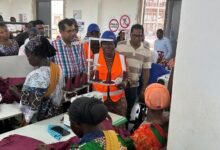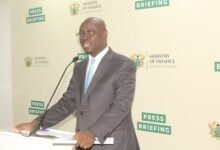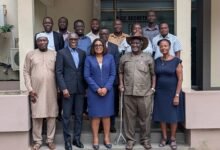Kpedze SHS invention to go through refining

A prototype solar dehydrator developed by some students of the Kpedze Senior High School (SHS) in the Volta Region is being refined and enhanced by the Council for Scientific and Industrial Research (CSIR) for commercialisation.
The device meant for preservation of vegetables and fruits to reduce post-harvest losses, includes a refrigerator to help reduce contamination during food processing as well as maintain nutrients level.
It won the students the first position in the 3rd edition of the Energy Commission (EC)’s SHS Renewable Energy Challenge contested by 119 SHSs across the country, last year.
At the launch of the 4th edition of the contest in Accra on Tuesday, the Executive Secretary of the Commission, Oscar Amonoo-Neizer, said after the enhancement the device would be outdoored at this year’s finale in October then commercialised, and promoted for use in agro processing.
He said the enhancement was in line with a Memorandum of Understanding between the EC and CSIR to ensure the sustainability
of the challenge through continued development and commercialisation of the students’ projects.
“This partnership offers an opportunity for students, teachers, and schools to reap financial benefits from their projects. This collaboration between the EC and CSIR underscores our commitment to nurturing innovation and propelling these remarkable projects towards real-world implementation,” he said.
Launched in 2019, the Challenge, a flagship programme of the commission, aims to promote the development and efficient use of renewable energy resources through public education, training and regulation of entrepreneurs in the sector.
With support from its partners, it is also to facilitate the mainstreaming of renewable energy and energy efficiency technologies and programmes into the curriculum of educational and training institutions.
This year’s Challenge is themed “Mechanised Small-Scale Agriculture using Renewable Energy Technologies” and requires participating schools to develop projects in the field of agriculture that incorporate renewable energy technologies.
Mr Amonoo-Neizer, said since its introduction, the challenge had served as a platform to foster renewable energy-focused research and development among students while also facilitating mentorship programmes that encourage the transformation of ideas into impactful and commercially viable solutions.
He applauded the project partners; German Agency for International Cooperation (GIZ), Ashesi University, Bui Power Authority, and Sunon Asogli Power (Ghana) Limited, for their invaluable support.
The Minister of Energy, Dr Matthew Opoku-Prempeh, in a speech read on his behalf said the challenge would help address the gap between academia and the industry, which has impeded growth and stifled innovation.
On the challenge for the year, he said, it was crucial in addressing difficulties associated with large-scale farming practices that heavily rely on manual labour and conventional machinery.
“I urge everyone to foster an environment of encouragement and support for schools, teachers, and students, enabling them to unleash their full potential in conceptualising and developing innovative projects and products,” he said.
The German Ambassador to Ghana, Daniel Krull, said with the increasing energy prices and growing debts of the energy sector, renewable energy was the best option given their supply security, cost effectiveness and positive impact on climate.
BY JONATHAN DONKOR






